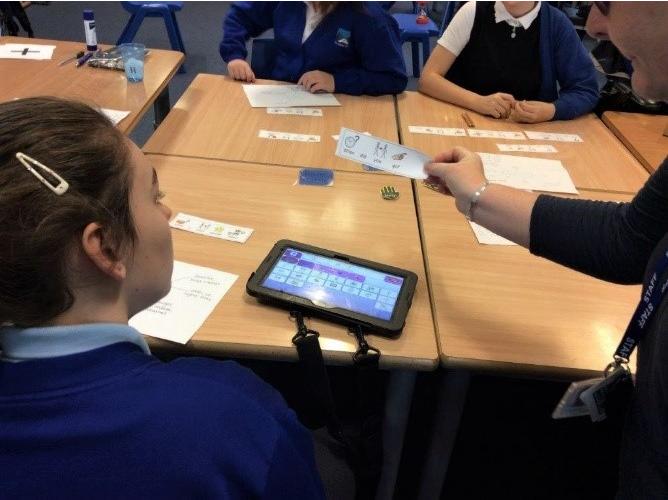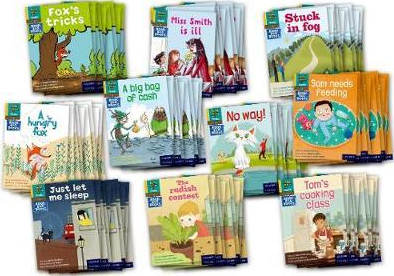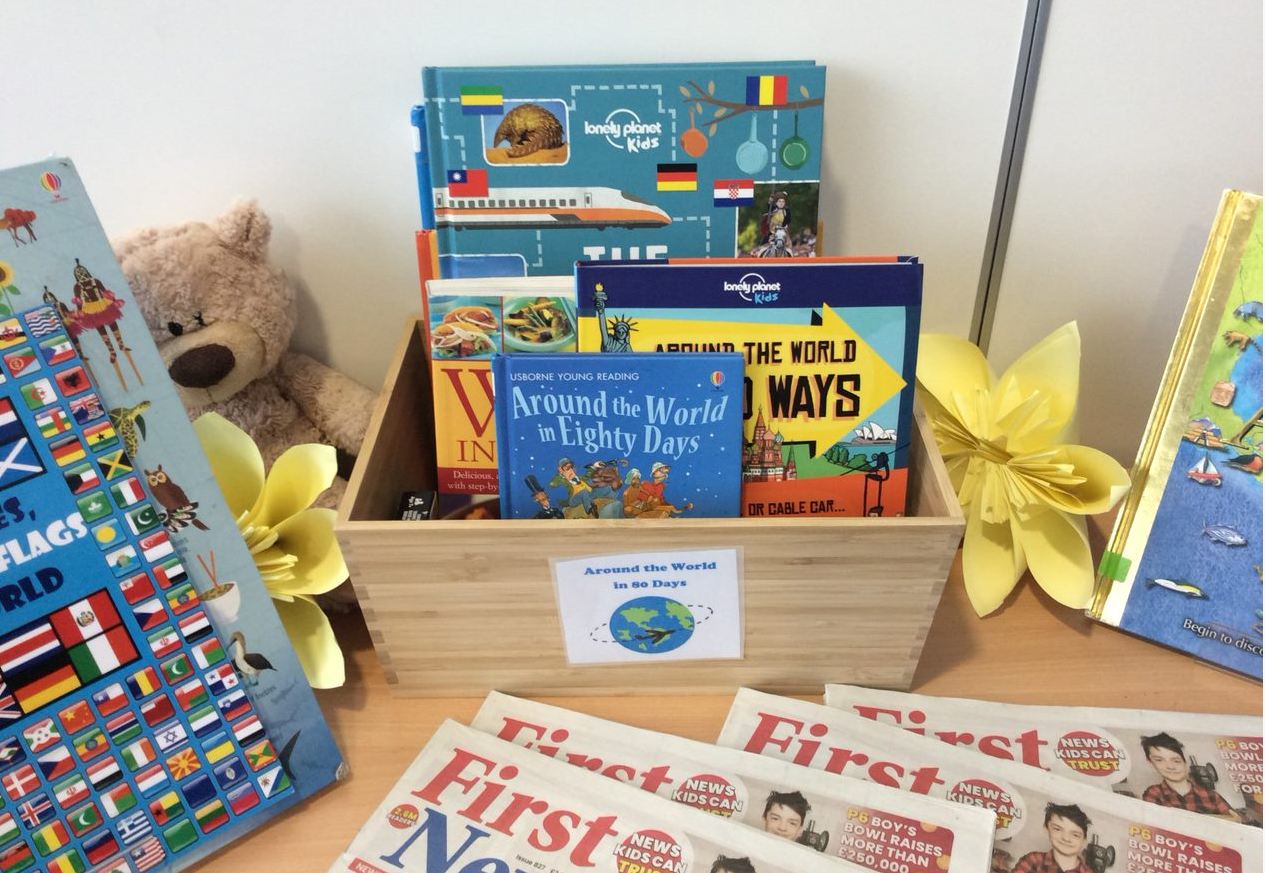Core Curriculum: Literacy
Literacy, including receptive and expressive communication, language development, early literacy and mark-making, phonics, writing and comprehension as well as reading for pleasure and fun, is vital for all our pupils. We value the building blocks of communication and language as a springboard to literacy skills, hence, our curriculum is a progressive small steps continuum, combining an evidence-based early program which exits into a phonics program that also incorporates writing and comprehension, when a pupil is ready. This continuum ensures each pupil has outcomes which are appropriate for them, enable them to succeed and prepare them for the next steps.
In addition to discrete lessons, our literacy learning is embedded into all aspects of the school day. We know that strong literacy skills support learning, achievement and confidence in all curriculum areas; for our pupils, working on Literacy beyond the lesson, in a range of contexts, is important for fluency, maintenance and generalisation. Communication is fostered in all activities; print materials such as photos, signs, symbols and visual timetables guide pupils through transitions and sequential learning tasks; individual social stories teach and reassure in times of anxiety; there are mark-making and writing opportunities in the playground; Smartboard, iPads and laptops help pupils learn internet literacy; pupils have access to a range of fiction and non-fiction books throughout the day. Literacy skills are also encouraged and supported beyond the school gates whilst out and about in the community, travel training or shopping. We believe that every moment is a learning moment and at the heart of these moments are the many skills of literacy which we aim to equip our pupils with as they grow into young adults.
Subject Strands:
- Communication is a whole school priority; Early Learning for Every Child Framework (‘Ontario’) supports us in choosing developmentally appropriate outcomes for each pupil and systematically supporting them towards meaningful next steps. Other than as part of Literacy for pupils in the early stages of development, Communication is not taught discretely, instead, our approach is cross-curricular.

- Communication, Language and Literacy (Early Learning for Every Child Framework, ‘Ontario’) forms the Literacy curriculum for pupils in early stages of development. Key outcomes for pupils developmentally in the birth – 3 years age bracket are developing their joint attention skills by looking at books with adults as well as strengthening their receptive language through listening to stories. Pupils also learn mark making in this developmental phase.
- Read Write Inc. Phonics / Fresh Start / Language and Literacy We have broken down this literacy program into tiny steps so our pupils can access it, when developmentally appropriate. Pupils in the 2.5 – 6 years developmental age bracket experience elements of Phase 1 Phonics, through play and sensory activities, in preparation for phonics teaching. When their phonological awareness starts to develop in this age band, pupils begin the ‘Read Write Inc.’ (‘Fresh Start’ for older pupils) program. Read Write Inc. is an inclusive and sequential Literacy program which incorporates phonics, reading, comprehension, writing and spelling. Should a pupil complete all the modules in the program, they move onto the ‘Literacy and Language’ program, by Read Write Inc., which offers a seamless progression and the next challenge.

- Entry Level (1-3) English; Functional Skills English Externally accredited programs will be offered to KS4 and KS5 pupils if these are needed for their next steps / destinations and if the pupils are able to access the courses. Pupils’ EHCPs and Adulthood Plans guide us in deciding whether an accredited route in appropriate. Our Literacy continuum identifies departure points for different levels of accreditation to ensure a seamless progression from the main curriculum program.
- Reading for Pleasure Reading for Pleasure aims to give pupils opportunities to access a range of reading materials, independently or with adult guidance. It also aims to immerse them in rich language and the features and conventions of storytelling. These sessions are timetabled a minimum of four times a week, for 30 minutes at a time, and alternate between pupil-led reading and teacher-led ‘storytimes’. No formal outcomes are identified for these sessions, instead, the focus is on pleasure and engagement, which we believe encourages lifelong reading and indirectly supports literacy skills, communication as well as social and emotional development.

